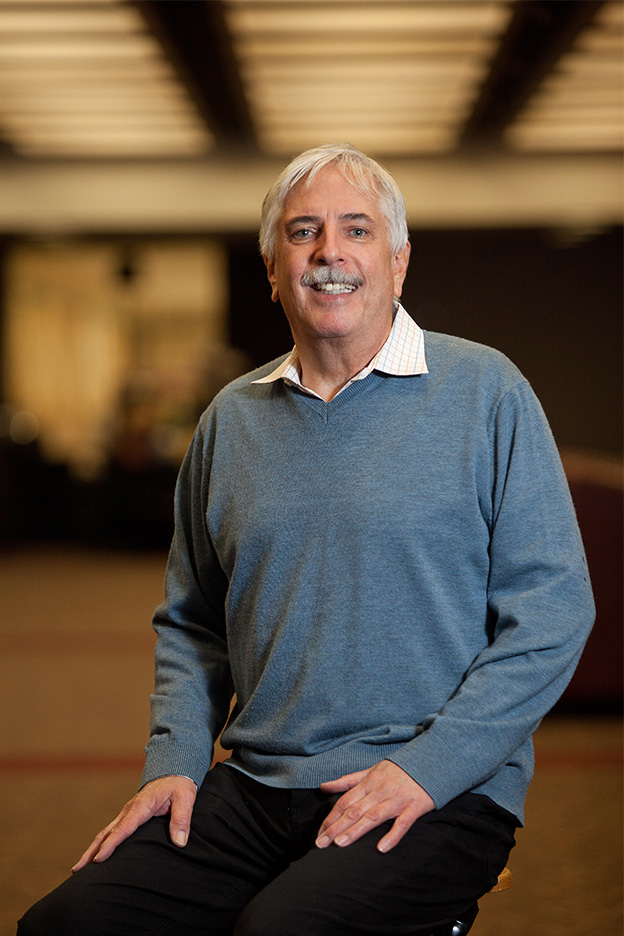Access Granted to NSF Resources
September 20, 2017
Professor Mike Erlinger’s early days at Harvey Mudd College were also the early days of computer networking. Joining the College faculty in 1981, he contributed to the development of the Computer Science Department and has since built a career working extensively in network security and management as well as K–12 computer science education. Now, two years from retirement, Erlinger is thinking about a different type of networking, that is, connecting opportunities from the National Science Foundation (NSF) to a new pool of computer science educators.
In 2014, Erlinger began a two-year stint as a program director for the NSF’s division of undergraduate education in Washington, D.C. During that time, he noticed that a significant number of computer science educators were not taking advantage of NSF funding opportunities. “Not only was I getting proposals from the same 100 people,” he says, “but they were distributing their output to the same small number of institutions.”
He sought ways to expand NSF’s footprint across the community and help change education. So he connected educators with NSF funding opportunities through a series of presentations at regional computer science conferences. Along with Harvey Mudd computer science professor Zach Dodds and Paul Tymann (Rochester Institute of Technology), Erlinger submitted the “NSF CCSC Computer Science Education Showcase” project, which was recently funded by the NSF. The two-year grant totals $103,726.
The Consortium for Computing Sciences in Colleges (CCSC) is a national organization developed to promote communication between local, regional and national constituencies interested in computer science education. “A significant number of institutions do not have the funding for faculty to travel to conferences and meetings,” Erlinger says. So, the CCSC developed a program to offer local conferences for educators across the nation.
Because of its program, CCSC has a strong national presence among most computer science educators. The NSF, however, does not. “We decided we’d go to some of these regional conferences and talk about NSF,” Erlinger recalls, laughing. “It was almost like meeting someone and describing water to them for the first time. They had no idea how to be involved with NSF. They’re aware that NSF funding is there, but they don’t know how to write proposals. From their viewpoint involvement with NSF is something other faculty do.”
The overarching goal of Erlinger’s project is to expand the NSF’s reach to the computer science education community. Another aim is to more widely publicize the results of NSF projects so that more educators can see what’s being done in their field. Erlinger also hopes to recruit faculty from more colleges and universities to review proposals for the NSF. “I want all faculty to come to NSF and to take advantage of NSF’s support,” Erlinger says.
Early results are promising: After Erlinger and his colleagues presented NSF showcases at a few of the regional CCSC conferences around the country, the NSF received approximately 50 computer science proposals from “new” institutions. As they seek to implement the project during the next two years, Erlinger, Dodds and Tyman plan to involve research students to help with management and organization.
NSF grants are the largest share of external support for faculty research at HMC.
